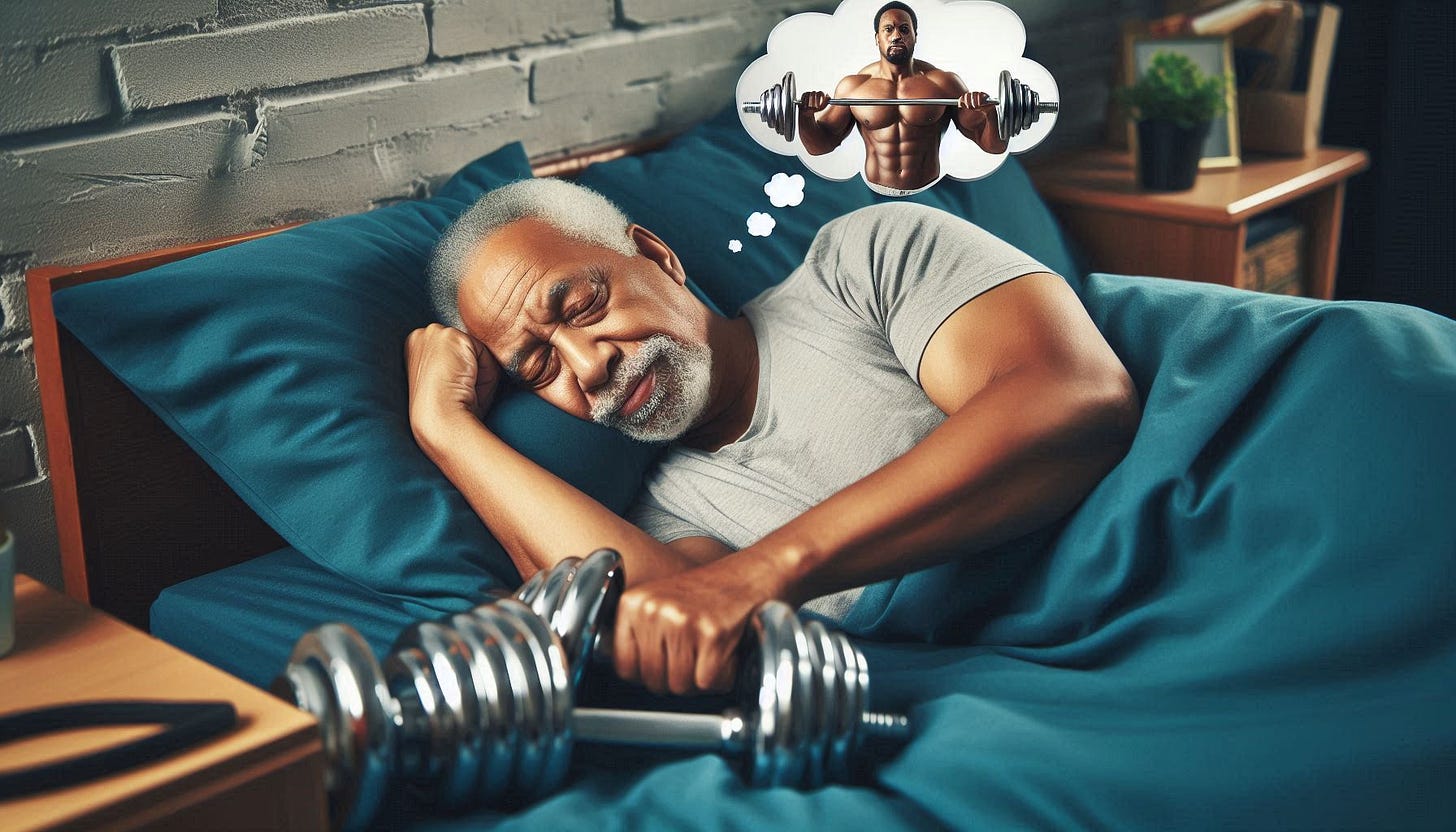How to build strong muscles and avoid sarcopenia
First, get enough sleep. Then do everything else
The gym is one place to go to build muscle, and bed is another. A lot happens while you sleep, and building lean tissue from protein is part of the body’s nocturnal activity. You just need good, quality sleep to facilitate the process. Once you have that, you can do everything else required to build and maintain muscle, as outlined below.
Easier said than done, especially when you’re getting on a bit.
It is a common myth that older people need less sleep. The truth is that they need just as much as everyone else: 7-8 hours.
The problem is they don’t always get it. Almost 50% of older people have a sleep disorder and this puts them at risk of muscle loss and weakness, also known as sarcopenia.
Sarcopenia is a progressive disease that can lead to falls and fractures, hospitalisation, and surgery. It sets in motion a domino effect that can have devastating consequences.
Although sarcopenia is considered an age-related condition, muscle loss starts early. There is a 3%-8% decrease in muscle mass per decade after the age of 30. By the age of 80, 11%-50% of people have the condition.
‘.. muscle mass declines by approximately 3–8% for each decade after 30 years, and this percentage increases significantly in people older than 60 years’
Where does sleep come into all this? If you are sleep deprived, you can’t produce enough of the hormones involved in building and maintaining muscle mass. As a result, muscle breakdown occurs at a faster rate than muscle synthesis.
Like so many disorders that become more common with the ageing process, sarcopenia is not inevitable. You just have to pedal that much harder to stay in the same place.
After sleep, what else? Here are five fundamentals
1 Eat more protein
Muscle is a protein structure and protein is the most important component of the muscle-building diet. The problem is that as we age, we don’t respond as well to protein intake as we used to, resulting in reduced muscle synthesis.
To compensate, you need to eat more protein to achieve the same effect as when you were younger.
Keep reading with a 7-day free trial
Subscribe to Your Nutritionist Recommends to keep reading this post and get 7 days of free access to the full post archives.


